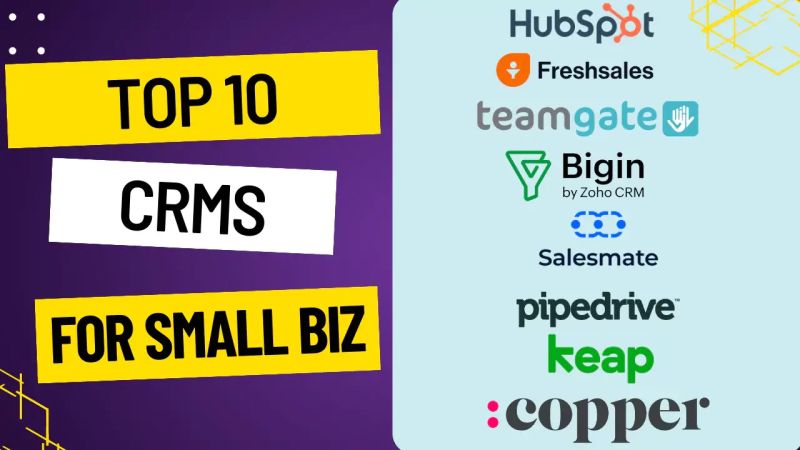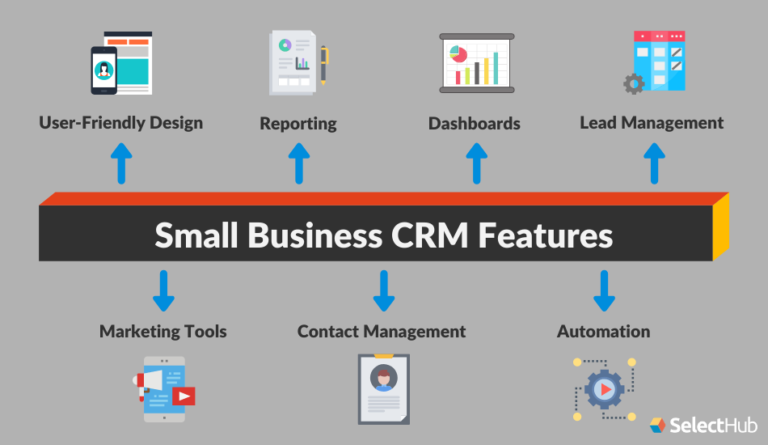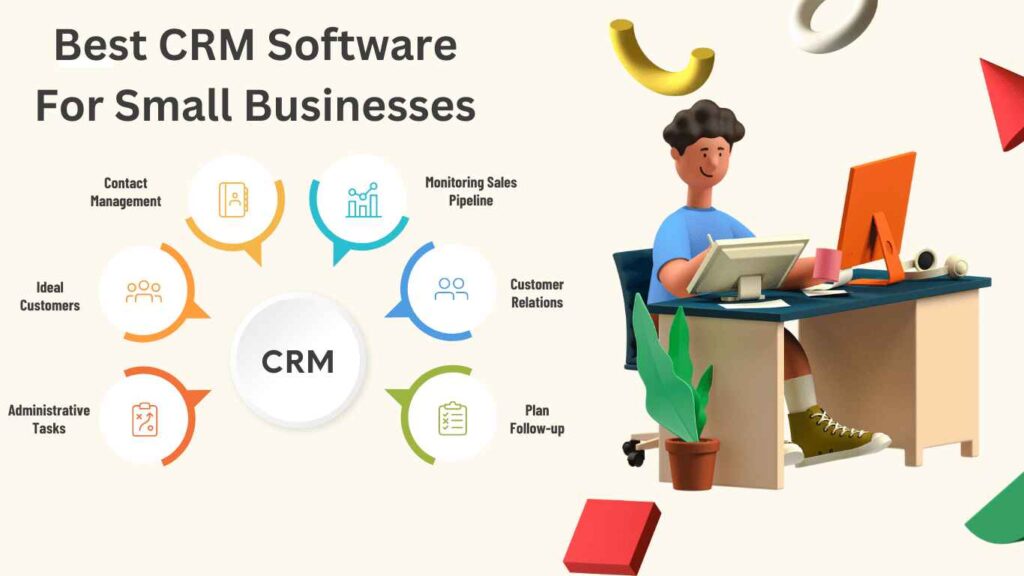Unlocking Salon Success: The Best CRM Systems for Small Businesses

Introduction: Why Your Small Salon Needs a CRM
Running a small salon is a whirlwind of appointments, client preferences, inventory, and marketing. Juggling all these aspects can feel overwhelming, especially when you’re trying to build a loyal customer base and grow your business. That’s where a Customer Relationship Management (CRM) system comes in. A CRM is more than just a contact list; it’s a central hub for managing all your client interactions and streamlining your salon’s operations. For small salons, the right CRM can be a game-changer, freeing up time, improving customer service, and ultimately boosting your bottom line.
This article will delve into the best CRM systems tailored for small salons, exploring their features, benefits, and how they can transform your business. We’ll examine the crucial features you should look for, compare different platforms, and help you choose the perfect CRM to fit your unique needs and budget. Get ready to discover how a well-implemented CRM can help you take your salon to the next level.
The Core Benefits of a CRM for Small Salons
Before we dive into specific CRM systems, let’s explore why a CRM is so vital for small salons. The benefits are numerous and far-reaching, impacting nearly every aspect of your business:
- Enhanced Customer Relationship Management: At its heart, a CRM helps you build stronger relationships with your clients. By storing detailed information about each client – their preferences, appointment history, service history, and contact information – you can personalize their experiences. This leads to greater customer satisfaction and loyalty. Imagine knowing a client’s favorite hair color or remembering their birthday. These small details make a big difference.
- Improved Appointment Management: CRM systems often include robust appointment scheduling features. This means you can manage bookings, send automated reminders, and reduce no-shows. A well-organized appointment system minimizes scheduling conflicts and ensures your stylists are always productive.
- Streamlined Communication: CRM platforms facilitate seamless communication with clients. You can send targeted marketing emails, appointment confirmations, and promotional offers. These communications can be personalized based on customer history and preferences, making them more effective.
- Efficient Marketing & Sales: CRM systems provide valuable insights into customer behavior and preferences. This data allows you to create targeted marketing campaigns that resonate with your audience. You can identify your most valuable clients, offer personalized promotions, and track the success of your marketing efforts.
- Increased Efficiency: Automating tasks like appointment reminders, follow-up emails, and client communication frees up your staff to focus on what they do best: providing excellent service. This increased efficiency leads to higher productivity and a more enjoyable work environment.
- Data-Driven Decision Making: CRM systems provide valuable data and analytics. You can track key performance indicators (KPIs) such as client retention rates, revenue per client, and the popularity of different services. This data allows you to make informed decisions about your business, such as which services to promote or which marketing campaigns are most effective.
- Inventory Management (in some cases): Some CRM platforms integrate with inventory management systems, allowing you to track product usage and manage your stock levels. This helps you avoid running out of essential products and optimize your inventory costs.
Key Features to Look for in a Salon CRM
Choosing the right CRM is crucial for maximizing its benefits. Here are the essential features to consider when selecting a CRM for your small salon:
- Appointment Scheduling: This is the cornerstone of any salon CRM. Look for features like online booking, calendar synchronization, automated appointment reminders (via SMS and email), and the ability to manage multiple stylists and stations.
- Client Management: The CRM should allow you to store detailed client profiles, including contact information, service history, preferences, allergies, and notes. This information should be easily accessible and searchable.
- Communication Tools: Look for features like email marketing integration, SMS marketing, and the ability to send personalized messages to clients.
- Reporting and Analytics: The CRM should provide insights into key performance indicators (KPIs) such as revenue, client retention rates, and service popularity. This data will help you make informed decisions about your business.
- Payment Processing Integration: Integrate with your existing payment processing system to streamline transactions and track revenue.
- Marketing Automation: Look for features like automated email campaigns, birthday reminders, and loyalty program management.
- Inventory Management (Optional): If you sell retail products, consider a CRM that integrates with inventory management to track stock levels and product usage.
- Mobile Accessibility: Ensure the CRM has a mobile app or is accessible on mobile devices so you can manage your business on the go.
- User-Friendly Interface: The CRM should be easy to use and navigate, with a clean and intuitive interface. This will minimize training time and ensure your staff can quickly adopt the system.
- Integration with Other Tools: Consider a CRM that integrates with other tools you use, such as accounting software, social media platforms, and online booking systems.
- Customer Support: Choose a CRM provider that offers excellent customer support, including tutorials, documentation, and responsive customer service.
Top CRM Systems for Small Salons: A Detailed Comparison
Now, let’s examine some of the best CRM systems for small salons, weighing their strengths and weaknesses:
1. Vagaro
Overview: Vagaro is a comprehensive salon and spa management software that includes CRM features, appointment scheduling, payment processing, marketing tools, and more. It’s a popular choice for salons of all sizes due to its user-friendly interface and extensive feature set.
Key Features:
- Online booking
- Appointment scheduling and calendar management
- Client management (detailed profiles, service history)
- Marketing tools (email marketing, SMS marketing, social media integration)
- Payment processing
- Inventory management
- Reporting and analytics
- Mobile app
Pros:
- All-in-one solution with a wide range of features
- User-friendly interface
- Strong marketing tools
- Excellent customer support
- Mobile app for on-the-go management
Cons:
- Can be more expensive than some other options
- Some users report occasional glitches
Ideal for: Salons looking for a comprehensive, all-in-one solution with robust marketing capabilities.
2. Fresha
Overview: Fresha is a free salon and spa booking platform with integrated CRM features. It’s a great option for small salons looking for a cost-effective solution. Fresha offers a freemium model, with optional paid features.
Key Features:
- Online booking
- Appointment scheduling
- Client management
- Automated marketing (email and SMS)
- Point of Sale (POS)
- Inventory management
- Reporting and analytics
Pros:
- Free to use (with optional paid features)
- Easy to set up and use
- Online booking is readily available
- Good marketing tools
Cons:
- Limited features in the free plan
- Can be less customizable than some paid options
Ideal for: Budget-conscious salons that are just starting out or looking for a free, easy-to-use solution.
3. Booksy
Overview: Booksy is a popular online booking platform with integrated CRM features, designed specifically for beauty and wellness businesses. It emphasizes ease of use and a strong online presence.
Key Features:
- Online booking
- Appointment scheduling
- Client management
- Marketing tools (promotions, loyalty programs)
- Payment processing
- Staff management
- Reporting and analytics
Pros:
- User-friendly interface
- Strong online booking capabilities
- Effective marketing tools
- Good customer support
Cons:
- Pricing can be higher than some competitors
- Limited customization options
Ideal for: Salons that prioritize online booking and a strong online presence.
4. Salon Iris
Overview: Salon Iris is a robust salon management software with a focus on detailed client management and reporting. It’s a good choice for salons that need in-depth analytics and customization.
Key Features:
- Appointment scheduling
- Client management (detailed profiles, service history, notes)
- Inventory management
- Point of Sale (POS)
- Reporting and analytics (extensive reporting options)
- Marketing tools
Pros:
- Comprehensive features
- Detailed reporting and analytics
- Strong client management capabilities
- Customizable
Cons:
- Can have a steeper learning curve
- May be more expensive than some other options
Ideal for: Salons that need in-depth reporting and customization options.
5. Mindbody
Overview: Mindbody is a well-known software platform that caters to a wide range of wellness businesses, including salons. It offers a comprehensive suite of tools for managing appointments, clients, and marketing.
Key Features:
- Appointment scheduling
- Client management
- Online booking
- Marketing tools (email marketing, automated campaigns)
- Payment processing
- Reporting and analytics
- Inventory management
Pros:
- Large user base and strong reputation
- Comprehensive feature set
- Integrates with other business tools
Cons:
- Can be expensive
- Interface can be complex
Ideal for: Larger salons or those that are part of a larger wellness business, requiring a comprehensive platform with extensive features.
Choosing the Right CRM for Your Salon: A Step-by-Step Guide
Selecting the perfect CRM for your small salon is a process. Here’s a step-by-step guide to help you make the right decision:
- Assess Your Needs: Before you start evaluating CRM systems, take the time to understand your salon’s specific needs. What are your biggest challenges? What features are most important to you? What are your budget constraints? Identify the must-have features and the nice-to-have features.
- Define Your Budget: CRM systems vary in price, from free to several hundred dollars per month. Determine how much you can afford to spend on a CRM. Remember to factor in not just the monthly fee but also any setup costs, training costs, and potential add-ons.
- Research Different CRM Systems: Based on your needs and budget, research different CRM systems. Read reviews, compare features, and explore the websites of the providers. Consider the options outlined above and any other platforms that seem promising.
- Sign Up for Free Trials or Demos: Most CRM providers offer free trials or demos. Take advantage of these opportunities to test the systems and see how they work in practice. This will give you a feel for the interface, the ease of use, and the overall functionality.
- Evaluate the User Experience: Pay close attention to the user experience during the trial or demo period. Is the interface intuitive and easy to navigate? Is the system easy to learn and use? A user-friendly CRM will save you time and frustration in the long run.
- Consider Integration with Existing Tools: Check whether the CRM integrates with other tools you already use, such as your accounting software, payment processing system, and online booking platform. Seamless integration will streamline your operations.
- Assess Customer Support: Review the customer support options offered by the CRM provider. Do they offer tutorials, documentation, and responsive customer service? Reliable customer support is essential, especially if you encounter any issues.
- Choose the Best Fit: Once you’ve evaluated the different options, choose the CRM system that best meets your needs and budget. Consider the features, user experience, integration capabilities, and customer support.
- Implement the CRM System: Once you’ve chosen a CRM, implement it carefully. This includes importing your existing client data, setting up your appointment scheduling system, and training your staff on how to use the system.
- Provide Ongoing Training and Support: Ensure your staff receives ongoing training and support to maximize the benefits of the CRM system. Encourage them to use the system consistently and provide them with the resources they need to succeed.
Tips for Successful CRM Implementation
Implementing a CRM system can be a significant undertaking. Here are some tips to ensure a successful implementation:
- Involve Your Team: Get your staff involved in the selection and implementation process. Their input and buy-in are crucial for the success of the CRM.
- Provide Thorough Training: Invest time in training your staff on how to use the CRM system. Provide comprehensive training materials and ongoing support.
- Import Data Accurately: Ensure your client data is imported accurately and completely. This is crucial for the effectiveness of the CRM.
- Set Clear Goals: Define clear goals for your CRM implementation. What do you want to achieve with the system? Track your progress and make adjustments as needed.
- Use the CRM Consistently: Encourage your staff to use the CRM consistently. The more you use the system, the more benefits you will realize.
- Personalize Your Client Communication: Use the CRM to personalize your client communication. Send targeted emails, birthday reminders, and other personalized messages.
- Monitor and Evaluate: Regularly monitor the performance of your CRM system. Track key metrics and make adjustments as needed.
- Seek Customer Feedback: Gather feedback from your clients about their experience with your salon. Use this feedback to improve your services and enhance your customer relationships.
Conclusion: Embrace the Power of CRM for Salon Success
Implementing a CRM system is a significant step toward growing and streamlining your small salon. By choosing the right CRM and utilizing its features effectively, you can enhance customer relationships, improve appointment management, streamline communication, and drive business growth. The right CRM empowers you to provide exceptional service, build client loyalty, and ultimately achieve salon success.
The choice of which CRM is best depends on your specific needs and budget. Consider the features, pricing, and user experience of each platform before making your decision. With careful planning and execution, a CRM system can be a powerful tool for transforming your small salon into a thriving business.
So, take the leap and embrace the power of a CRM. Your clients and your business will thank you for it.




